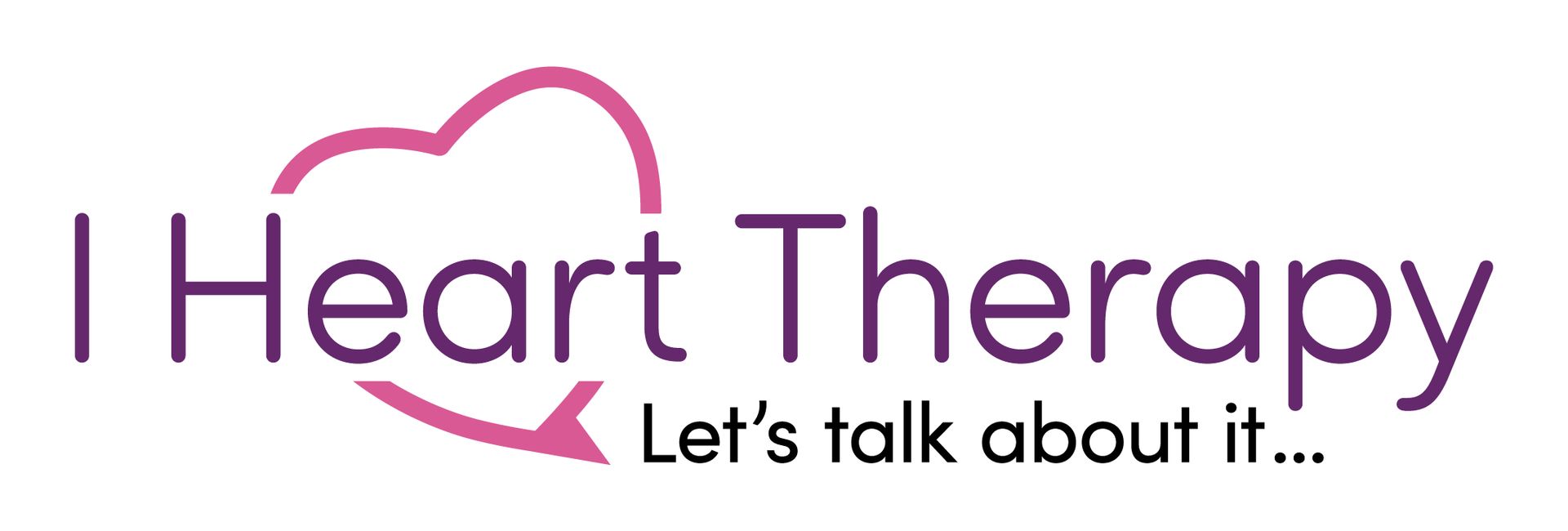17 People Share the Best Things They Learned in Therapy
Sam Brodsky • April 15, 2019
"Well, my therapist says..."

Heads up: There's a discussion about sexual assault at the end of this article at #17, in case you want to skip.
We all have that friend who's constantly quoting their therapist (or maybe you're that friend?). And, whether a sentence that starts with “my therapist says” makes you cringe or not, there's a reason why mental health pros are so damn quotable: They know what they're talking about. Therapists, obviously, are all about you and your feelings. So you can show up with your thoughts spirals and buckets of emotions and they'll help you sort through them. Whether a mental health professional is sitting on a couch across from you or on the other end of zoom, they can use therapy techniques to teach you positive self talk, how to face certain fears, ways to improve communication skills, or just how to take care of yourself. They can also support you by offering an outside perspective and giving you the lowdown on things like attachment theory or the impact of trauma when discussing your past experiences, says psychotherapist and author Chris Warren – Dickens, LPC.
While you could call the exercises or ideas your therapist brings up “advice”, technically it's up to you to process that info and make any sort of decisions on your own, he adds. Still, therapists can be kind of amazing at reframing otherwise hard-to-understand techniques and ideas, so that you can use them in your every day life – which is why we've gathered here today, friends.
Ahead, we asked people to share the most helpful tips, tools, and perspectives from their therapists and how all of that changed their mental health for the better. From learning to put yourself first to dealing with depression, these genius insights can help anyone going through a difficult time.
1. You can only control how YOU live your life.
“My therapist always tells me that I can't control other people. I can only control how I interact with them. I wish some people I love would take my advice when it comes to certain adverse situation's, but I have to remember that they are the experts on their own lives, and I might not actually know better, even though I am a Virgo! But I can still support and love them.” - Emma W., 30
2. After pain, face the world (and yourself) with patience.
“When I was 14 weeks pregnant in 2012, I had a sudden miscarriage. I beat myself up thinking something in my body went wrong and I hurt my baby. My therapist was the only person I would speak to. She made me do two things: 1. Whatever I was saying to myself, envision a friend and say it to them. If I would never say it to them, I wouldn't be allowed to say it to myself. 2. I had to leave my house once a day and provide her with receipts as proof. I would walk through the mall sobbing and like a zombie to get a movie ticket, a snack, or a gift for myself. She didn't care if I watch the movie, ate the snack, or gave the gift away. She just wanted me to see and feel forgiveness and to build courage to face the world again. -Mandy T., 46
3. Visualize your negative thoughts to be kind to them.
“When negative thoughts or memories from the past traumatic experience come up, you can imagine they are paintings on the wall and look at them with a compassionate eye. Tell yourself that it's OK to feel bad and that you went through hard moments, but those are in the past. Then, imagine leaving the room and leaving them in the past you can also imagine these thoughts are your children and they come into the room you're in. Give them a cup of tea, hug and soothe them, caress their head, tell them it's OK, and talk to them in a motherly way. When they are calm, gently walk them out through another door.” - Laura F.
4. The way you feel about yourself isn't always based in facts.
"I was talking to my therapist about some physical health issues that are altering the way I look a bit, how I find myself hyper fixating on the changes, and how I feel bad about myself as a result. He said, you see what you feel about yourself, and feelings are the least reliable forms of evidence. It helped me to see that my default mode of self criticism, which I've struggled with long before I had health issues, is coloring what I see in the mirror and making it seem worse than it really is. The way I feel about myself internally is effectively making it harder for me to navigate and accept myself externally. The message isn't to ignore our feelings, of course, but to regularly question them, particularly when they are presenting themselves to us as fact." – Jessica S., 31
5. Emotions come in all sizes.
"My therapist once described my emotional state as 'little d depressed'. And that stuck with me because, as someone who has felt big D depressed, I always imagined that anything better than big D depressed meant that I had to be OK. The reality is when you live with depression, or any mental health struggle, you'll go through the motions that are big and ones that are a little, but that doesn't make life better or worse." – Nora D., 26
6. You can be who you are no matter what’s happening around you.
"I've been in therapy for nearly a decade now. What stuck with me the most was when my therapist told me, nature just is and you can be too. She emphasized how a tree, for example, grows despite its surroundings. It continues to be a tree no matter what else is going on around it. I have adapted that to: I can be me in all circumstances at all times. I can still exist as a wonderful, committed, successful human despite my anxiety and depression trying to tell me otherwise. I will also often think of myself as the ocean and waves with this in mind. The water is very rarely still – waves are always coming and going – and ocean remains the ocean. This mindset has helped me through difficult times and allowed me to remember my innate worth simply because I exist." – Drew T., 28
7. Sort your anxieties into fiction and non-fiction.
"I have anxiety, and when I first admit it to myself that I needed some tools to figure out how to live with it, I went to a cognitive behavioral therapist for a few sessions. She said, pretend you're in a library. Now find the nonfiction section. Go there. Ignore the fiction section – you don't need that one. Stay in nonfiction and start to list the things you know are true. It's likely you'll soon see that most of what's causing you anxiety is stuff from the fiction section. But you're not in that section, so stick with the facts!
Something about visualizing a fiction and nonfiction sections resonated so deeply with me. For starters, the concrete visualization exercise takes me to a more meditative place right away, which distracts me from physical anxiety sensations I feel. And then, once I start sorting ‘my anxieties’ into fact or fiction, I start to see that a lot of what I'm anxious about is conjecture." – Morgan B., 46
8. Healing is messy and takes time.
"The best advice I've been given from my therapist is that healing is not linear. Before entering pretty intensive therapy, I thought that I would go in, have some sessions, and things would start to progress in an upward motion from there. It tends to add and flow and takes turns and dips before rising again. We never know what life will throw at us, so it's impossible to know the exact direction that the therapeutic journey will take." – Lindsay A., 37
9. Feel your grief so that you can also feel happiness.
"You can't close yourself off to grieve without also closing yourself off to joy. My therapist told me to think of it like a kink in the hose if you try to stop the flow of sadness, you stop the flow of happiness at the same time. The key to a beautiful life be willing to feel it all." – Andrea G., 47
10. You can keep moving forward regardless of the path you take.
"The tip from my therapist that has stuck with me the most is that 'there's always a move'. In other words, there's always a way to navigate through or remove yourself from challenging situations, and there's always a way to create a more fulfilling life. Things are not set in stone, and there is always a path forward – though it's not always clear right away – toward a happier existence." – Zoe S., 26
11. Talk to yourself like you would a BFF.
"I struggled with incessant negative self talk for most of my life. It wasn't until my therapist put it into perspective for me that I began to change my mindset. He asked me to imagine a specific friend who's going through a hard time. What advice would I give them? Was it supportive and kind? He then told me to imagine I was going through the same thing. What would I tell myself? My inclination was to beat myself up and tell myself I should be doing better. But he challenged me to be as kind to myself as I was to my friend because I deserve kindness. I didn't need to earn my own kindness, I was good enough already." Rachel E., 31
12. Think about how your past experiences impact your behavior right now.
"I spent three years in therapy understanding what my inner child stuff is. Some [therapists say that] the things we didn't get as children that remain in our subconscious and actually guide our actions and emotions without our knowledge. My inner child has a fear of abandonment, so I'll do things hoping to earn someone's live. Every day, I take tiny steps or set micro boundaries to challenge and cope with that fear. For example, I'll check in with myself to see if I want to actually do the thing I am about to do or if I'm just trying to earn a person's live." – Amanda G., 37
13. Let your feelings be huge.
"The most impactful thing I remember my therapist ever telling me was depression can happen because you have decided that you're feeling should only take up a certain amount of space. She told me to let my feelings be as big as they are. Let them feel the amount of space that they want to fill. It changed my life, and I stopped convincing myself that the things in my life were too insignificant to have feelings about and I just felt them." – All J., 34
14. Ask yourself “and then what?” when you’re spiraling.
"A special skill of mine is catastrophizing whenever I'm worried about some thing that I have zero control over. One of the most game changing moments I had in therapy was an exercise my therapist called 'and then what?'. We basically played out the worst case scenario currently taking up space in my brain and took it as far as possible. The idea was to try to address the uncertainty and the tools I had to deal with it. For instance if you were catastrophizing around a relationship ending (like I was), you would face each one of the scary thoughts in your head (OMG we're breaking up. I'll have to find a new place. I'll probably lose some friends. I'll have to answer what happened? 100 times. Ew, I'll have to date again…) and meet
each of those starts with 'OK and then what?'
It was incredibly hard and emotional but the takeaway was even if my catastrophic thoughts come true, life will go on. It might look very different than you expected and it might be really effing hard, but you'll keep going. Now, when I start catastrophizing about anything in the future that I don't have control over – whether it's a work issue or an airline losing my luggage – I remember that even when the thing you're worried about actually comes true, you figure it out. Sometimes that's enough to stop me from spiraling." – Casey G., 33
15. Focus on small wins when your’e depressed.
"A therapist once told me that just getting to the gym is a success when I'm depressed. It helped me separate the act of leaving the house, commuting, and going into a building from the actual lethargy of depression that halts participation. I could leave the house, catch the bus, and enter the gym, but I just couldn't run, lift weights, or swim and that's OK.
I've taken this into other areas of my life. So when I'm depressed, I still give myself permission to go to the places I go when I'm happy, but I shift my expectations. There is a café I always visit to work or study. When I'm depressed, I still go, but I don't take my laptop. Instead, I have a hot chocolate, listen to music, and people watch. I'm doing 60% of what I would normally do, rather than not engaging in any of it because I know I can't give 100%. It helps remind me that I still deserve to be part of the world. That I am still worthwhile." – Ashley W., 32
16. Perfection is arbitrary.
"I started going to therapy to deal with major social anxiety that was really disrupting my flow at work. I get so anxious before meetings where I had to present ideas that my heart would race, I felt short of breath, and I could barely read what was on the page in front of me. One thing that really helped me cope with my therapist's point that perfect does not exist. So, even if my managers hated my presentation, it didn't mean they were right and I was wrong. They are concept of perfect work could be different than mine, and that didn't mean that my ideas sucked or that I was bad at my job." – Ashley O., 32
17. You can channel your anger toward something good.
"My therapist helps me make choices that are healthy for me. During one session, I vividly remember discussing my rape case with her. I told her how the police did not notify me when the investigation was closed. So, when I relentlessly demanded a meeting as to why, I discovered my perpetrator used his fifth amendment right. This meant they could not interview him, which caused a lack of evidence to prove anything. At the point I was telling this to my therapist, I was passed the immediate PTSD from this case and was discussing my advocacy work with her. I said, I know all the police saw was an angry, fed up woman. She said, you know what I think about angry women? Angry women change the world. She and I discuss this often how to balance taking care of myself while still crafting my skills as a writer and storyteller for change." - Debbie J., 26
How To Cultivate Hope

Are You Tired of Feeling Like You're Falling Behind in Life? In today's fast-paced world, young women face unprecedented challenges. From climbing the corporate ladder to maintaining meaningful relationships, the pressure to excel in every aspect of life can feel crushing. Add in social media's highlight reels and society's ever-rising expectations, and it's no wonder so many of us feel like we're running on empty. But here's the truth: feeling lost doesn't mean you're actually lost. It's a natural part of the journey that almost every successful woman has faced at some point.


